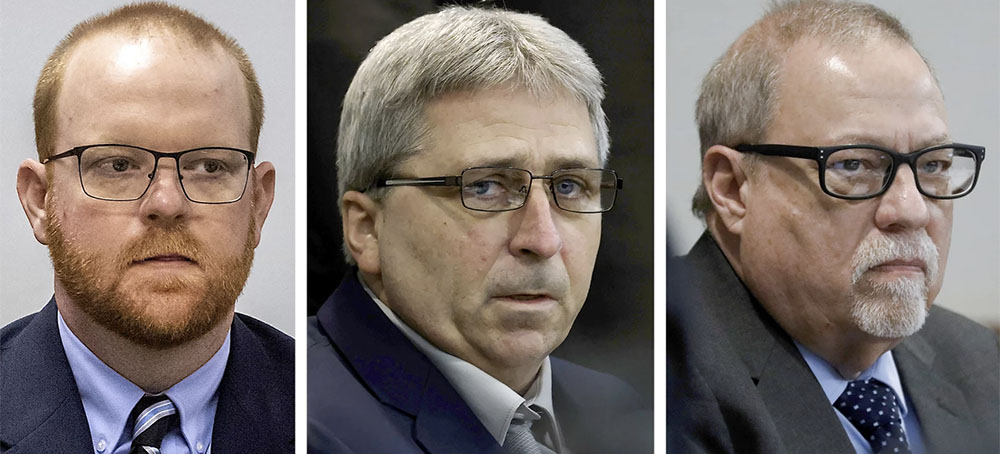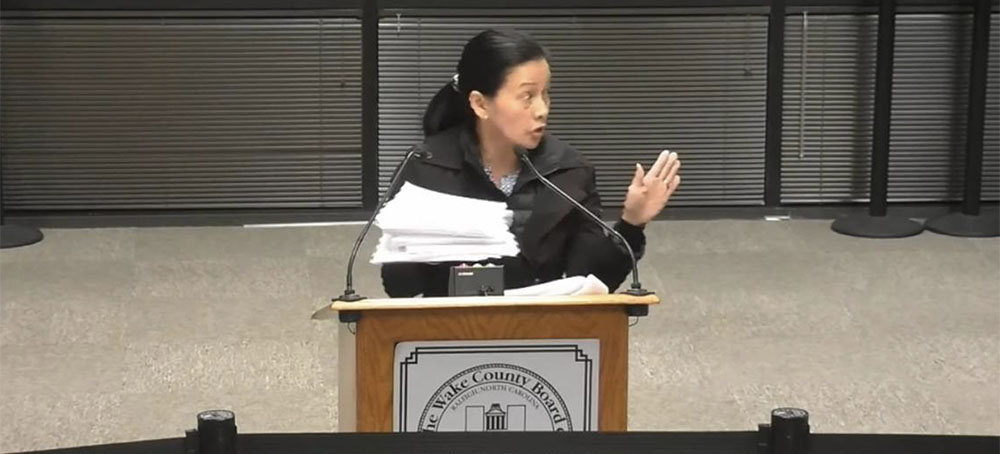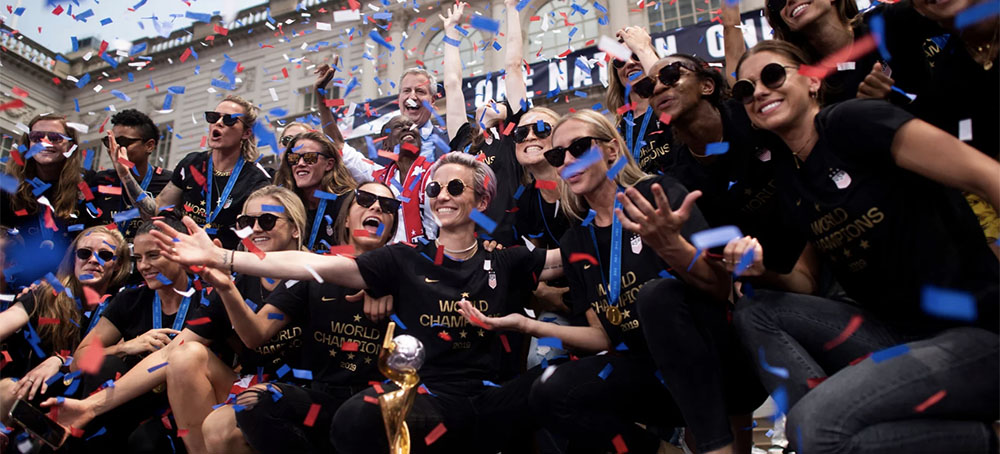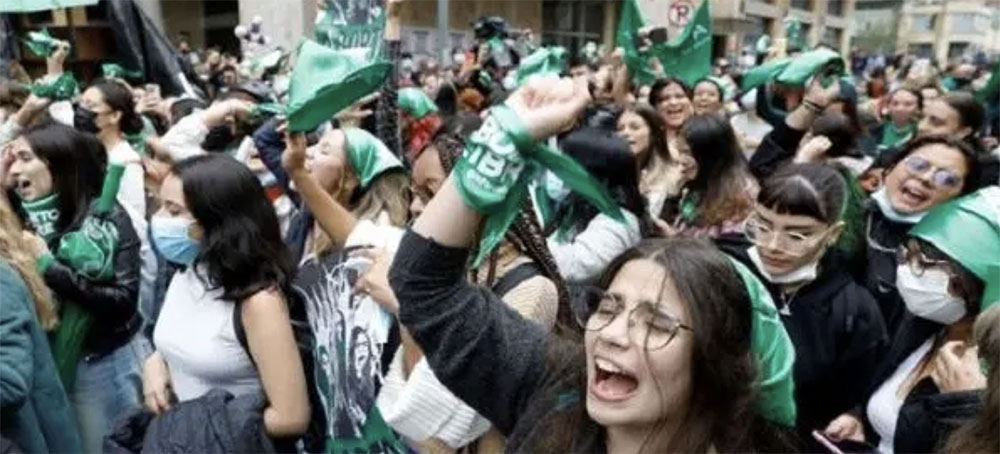We Are Getting Donations, But Little Money
We are actually getting a fair number of donations. But the amounts are quite small. As a result the progress bar is not moving much.
At 30K readers daily and only 30 donations, obviously we have a lot of people not donating yet.
Your assistance would be greatly appreciated.
Marc Ash
Founder, Reader Supported News
If you would prefer to send a check:
Reader Supported News
PO Box 2043 / Citrus Heights, CA 95611
Follow us on facebook and twitter!
Live on the homepage now!
Reader Supported News
Tragic...
Combustible...
Unknowable....
War comes once again to Europe. Will it be a set of skirmishes or a major assault? Will Putin nibble or go all in? What will be the response? Will it simmer or explode?
What shape it will take, what twists will come, and how and when it may end, is beyond the ability of any one to predict - including the lead actors.
One of the only certainties of war is that there is no certainty, other than it is hell and leaves destructive sadness in its wake.
There are echoes of the past, the reverberations of blood spilled across the continent... of Cold Wars... and proxy fights... of staring into the abyss of escalation and detente...
There is no shortage of analysis, and much of it is prescient and thoughtful. This is a region that has long been studied and analyzed. Putin is a well-known adversary, regardless of how the previous president viewed him. It seems like American intelligence is locked in. But there will be surprises. There always are.
Beware of the armchair generals... it is easier to opine when you are not on the battlefield and the acuity of your predictions will not be measured in lives lost.
But there is something else this time around, something new that I have never seen before on the scale we are witnessing. There are many in this nation, cheered on by powerful media voices, who seem more aligned with a dangerous foe to America and a peaceful world order than they are with our own leadership.
Our divisions are a weakness that our enemies eagerly exploit. Whether willingly or not, we do their bidding with our bickering. To reduce the world order to shorsighted political calculations is to undermine our own national security.
These are dangerous straits, and we should all pray for a steady hand at the helm of our ship of state. There can be no confusion that we are on the side of freedom of sovereign nations to choose their own identity.
We can debate how we got here, but now is not the time to waver. That does not mean we ourselves should enter the conflict. The steps ahead must be judged with a full assessment of our own national and strategic interests. But to puppet the rhetoric of the Kremlin will hurt not only those facing the Russian forces in central Europe, but all who wish for a world of justice and stability.
Steady.
 Travis McMichael (from left), William "Roddie" Bryan and Gregory McMichael are shown during their trial in Brunswick, Georgia. (photo: AP)
Travis McMichael (from left), William "Roddie" Bryan and Gregory McMichael are shown during their trial in Brunswick, Georgia. (photo: AP)
The jury deliberated for four hours. At the heart of this case was a question of whether or not race was a motivating factor in why the three defendants chased and shot Ahmaud Arbery as he ran through their coastal Georgia neighborhood in February 2020.
The defendants were charged with violating Arbery's civil rights, kidnapping, and for the McMichaels, an additional charge of use of a firearm to commit a crime. All three men were convicted of murdering Arbery in a state trial last year and sentenced to life in prison.
After the federal verdict Tuesday, members of Arbery's family emerged from the courthouse with arms raised.
"As a mother I will never heal," said Wanda Cooper-Jones, his mother. "They gave us a small sense of victory, but we will never get victory because Ahmaud is dead."
The federal charges carry a maximum life sentence. The defendants will have 14 days to file appeals and a sentencing hearing will be set at a later date.
Prosecutors highlighted racist digital content shared by the defendants
To convict on this hate crimes charge, federal prosecutors were tasked with proving to the jury that the defendants targeted Arbery because he was Black. For four days last week, witnesses recounted racist interactions with Greg and Travis McMichael, and prosecutors spent a full morning of the trial going over racist and sometimes violent content from the defendants' digital footprints, including texts and videos.
"If Ahmaud was another white person jogging, would this have happened in the way that it did? If Ahmaud hadn't been using public streets, would this have happened the way it did?" prosecutor Christopher Perras asked in the government's closing arguments on Monday.
He argued that the racial slurs and memes, while not illegal in themselves, could help inform jurors about the mindset of the defendants when they saw Arbery run through Satilla Shores that day.
Perras said they acted on racial assumptions, racial resentment and racial anger that had been building for years.
"They didn't need to talk about it. They knew what they were going to do," Perras told jurors. "They grabbed their guns and went after him."
Defense attorneys maintained that their clients had legitimate reasons to pursue Arbery
"Would this have happened to a white guy? Yes," said Amy Copeland, attorney for Travis McMichael. She encouraged jurors to consider the evidence that wasn't presented: The government never called any Black witnesses to share stories of her client's racism, she argued, and there was no evidence that Travis McMichael belonged to any white supremacist groups. Copeland declined to call any witnesses to testify for Travis McMichael during the trial.
None of the attorneys disputed any of the racism evidenced in their clients' digital footprints, and even personally disavowed these viewpoints, while maintaining that the defendants had legitimate reasons to pursue Arbery, after recognizing him as the same man seen on surveillance cameras inside a home construction site at night.
Bryan's attorney, Pete Theodocion, tried to emphasize the differences between his client and the other two, telling jurors that Bryan "wasn't trying to be Johnny Law-Enforcement," but "his instinct told him people don't get chased like that unless they've done something wrong, and in some cases very wrong."
"These defendants saw Ahmaud as less than human, as less than an animal," prosecutor Lyons told jurors in her final rebuttal before Judge Lisa Godbey Wood sent the jurors out to deliberate on Monday afternoon. Lyons emphasized that they showed no remorse as Arbery was bleeding in the street.
"I think the DOJ [Department of Justice] presented its case well," Ahmaud Arbery's mother, Wanda Cooper-Jones, told reporters outside the courthouse on Monday.
"I'm very emotional. This has been very draining, and I'm thankful this is almost over," she said, noting that she was hopeful for a verdict in time for the second anniversary of her son's death this Wednesday.
Feb. 23 is now officially known as Ahmaud Arbery Day in the state of Georgia.
 Chief Justice John Roberts speaks at the Federal Circuit Judicial Conference in 2016 in Washington. (photo: Andrew Harnik/AP)
Chief Justice John Roberts speaks at the Federal Circuit Judicial Conference in 2016 in Washington. (photo: Andrew Harnik/AP)
The case involves a Colorado website designer who wants to refuse services for same-sex weddings.
The case involves a Colorado website designer, Lorie Smith, who planned to expand her business to serve couples getting married. Because of her religious convictions, she wanted to post a statement on her site to say that she would not offer her services for same-sex weddings.
But a federal appeals court ruled that her refusal and her proposed statement would violate Colorado’s anti-discrimination law.
In a brief order, the Supreme Court said it would take up the case to consider “whether applying a public-accommodation law to compel an artist to speak or stay silent violates the Free Speech Clause of the First Amendment.”
The court will hear the case in its next term, which begins in October.
Smith’s lawyers, in urging the court to take up the issue, said the Colorado law “compels speech based on viewpoint, and creates a pro-LGBT gerrymander by requiring religious artists to celebrate same-sex marriage while allowing other artists to decline messages like ‘God is dead.’”
The case is unusual because it does not involve a lawsuit filed by any customers who were denied service. Instead, it involves a dispute between the business owner and the state, which began when Smith sought an exemption from the law that bans discrimination on the basis of sexual orientation.
For that reason, Colorado urged the court not to take the case.
“The record contains no evidence that anyone has asked the company to create a website for a same-sex wedding, that Colorado has threatened enforcement, or that any future wedding website would convey a message that would be attributed to the company,” its lawyers said in their legal filings.
They said the state law is a straightforward regulation of a commercial service and does not discriminate on the basis of religion because it treats all religions equally. Besides, the state said, even if a business offers a service that involves an expressive element, people assume that the message expresses the views of the customers, not the business.
The Supreme Court has repeatedly refused in the past to take up the issue raised by similar cases, involving wedding photographers, florists, and a Colorado baker. One potential question in those cases was whether such actions as baking a cake or arranging flowers were mainly expressive or simply amounted to offering a service or product.
In agreeing to hear this latest case, the court declined to take up a separate issue raised by Smith on whether the state’s actions violate her religious freedom. As teed up for next term, the case presents this question: Is there a free-speech exception to laws intended to prevent discrimination?
 Katie Long speaks at the Wake County school board meeting on Jan. 18, 2022, in Cary, N.C., where she served papers on board members saying she'd file a bond insurance claim against them if they don't drop the face mask mandate. (photo: Wake County Public Schools)
Katie Long speaks at the Wake County school board meeting on Jan. 18, 2022, in Cary, N.C., where she served papers on board members saying she'd file a bond insurance claim against them if they don't drop the face mask mandate. (photo: Wake County Public Schools)
A group called Bonds for the Win is organizing parents to file claims against school districts’ insurance policies, taking a page from the sovereign citizen playbook.
Teachers and staff members of her school district in Bethalto, Illinois, a small town outside of St. Louis, were suddenly worried that they would not be paid. They had seen videos posted online in which a parent who objected to the district’s Covid mask mandate said that she had filed a claim against the district’s insurance, causing the schools to lose all federal funding.
Griffin, the Bethalto schools superintendent, has spent weeks dealing with the fallout.
“You have district officials who are spending time on things like this, rather than on what we need to be spending time on — making sure that our classrooms are covered right now in the middle of a pandemic,” Griffin said.
The parent’s claims were baseless. She had no ability to use the mask mandate to file a claim against the district’s insurance policy, or affect its federal funding in any way.
But the scare tactic has become a familiar one. A growing number of school districts across the country are facing similar challenges from parent activists who have adopted strategies and language that are well known to law enforcement and extremism experts who deal with far-right “sovereign citizen” groups in the U.S. The Southern Poverty Law Center and Anti-Defamation League call it “paper terrorism.”
The parents’ strategy is simple: Try to use obscure and often inapplicable legal claims to force a school district to make a policy change. And while the claims have no legal standing, they have been effective at spreading confusion and wasting school districts’ resources, even though the paperwork doesn’t require a formal legal response.
The parents and activists have organized through a new group called Bonds for the Win, which is named for a financial instrument at the heart of the pseudo-legal effort. The group’s members have spent the past two months bombarding school administrators with meritless claims over Covid policies and diversity initiatives. These claims allege that districts have broken the law and therefore owe parents money through what are called surety bonds, which government agencies often carry as liability insurance.
Bonds for the Win’s claims are not legitimate, according to education officials, insurance companies and the FBI. But even though the group has won no legal battles, it has already celebrated some successes in overwhelming districts with paperwork, intimidating local officials and disrupting school board meetings.
“There is a lot of misunderstanding and misinterpretation of the purpose of a local school governing board,” said Julie Cieniawski, president of the Scottsdale Unified Governing Board in Arizona, which was one of Bonds for the Win’s first targets. “I do believe it has kind of become a central meeting point for people to share their grievances and not specifically about our district. It’s almost like living in a reality TV show when you’re experiencing it.”
In at least 14 states, Bonds for the Win activists attempted to serve sham paperwork to school districts, in several cases causing commotions that required police intervention. And the number of people joining their cause is quickly growing as misinformation about the strategy’s effectiveness circulates.
On the chat app Telegram, where the activists organize, Bonds for the Win’s main channel grew from 700 subscribers to nearly 20,000 in the past month. Its members focus on schools, but they have also served paperwork to a handful of county commissioners and discussed plans to go after other local officials, judges and sheriffs with similar claims.
Bonds for the Win did not respond to requests for comment.
The new strategy comes as school boards across the U.S. continue to serve as the front lines of a broader culture war that began in the midst of the 2020 presidential election and debates over pandemic-related safety measures. Parents have targeted school boards with activism ranging from recall petitions to criminal complaints over books available in school libraries. Bonds for the Win is using these battles as a way of drawing in followers, demonstrating how quickly a faulty fringe tactic can generate momentum as frustrated parents join forces with conspiracy theorists.
Miki Klann, a QAnon adherent in Scottsdale, Arizona, who has said she believes AIDS is a hoax and that the Earth is flat, founded Bonds for the Win in December. She did not respond to requests for comment, but has described her goals in numerous videos posted online.
“We’re hoping that the parents start standing up and calling these people out for the crimes against humanity that they’ve been coerced to commit,” Klann said in a recent video uploaded to BitChute. “We want the people to understand their sovereignty.”
The group’s strategy of intimidating government bodies with paperwork has been used in the past by sovereign citizens, loosely affiliated right-wing anarchists who believe federal and local governments are operating illegitimately.
“During the pandemic, you saw more and more of these pseudo-legal statements from people proclaiming that they didn’t have to wear a mask, citing various federal laws that just were not applicable at all,” said Mark Pitcavage, a senior research fellow at the Anti-Defamation League’s Center on Extremism. “Whether it’s connected with the sovereign citizen movement or not, it is a form of paper terrorism.”
“Paper terrorism” is a well-known tactic among anti-government extremist movements. The term originates from terminology that law enforcement officials used to describe the tactics of the Montana Freemen, an anti-government, self-described “Christian Patriot” militia that illegally declared its township in Montana outside the authority of the U.S. government.
For years, the group “buried local judges, sheriffs and county attorneys in a forest of paper,” according to the Southern Poverty Law Center, assailing local government offices with baseless lawsuits and fake court judgments. After an armed standoff in 1996 in which the Freemen refused to leave their foreclosed land, the group surrendered to authorities.
Bonds for the Win doesn’t explicitly describe itself as part of the sovereign citizen movement. However, it is taking a route similar to that of many anti-mask and anti-vaccine movements that have grown during the pandemic by borrowing tactics and faux-legal verbiage from sovereign citizens to fit their own purpose.
The faulty insurance claims focus on surety bonds, which school districts and other government agencies often carry as liability insurance in case an employee commits a crime like embezzling money. Typically, only the district — not private citizens — can file a claim, according to insurance companies, but parents following Bonds for the Win apparently believe they, too, can file claims over Covid precautions and other complaints. Activists say that once they file these claims, either the insurance company or school officials will have to pay a financial penalty to parents. This is not the case, insurance companies and districts say.
The claim letters cite various state, federal and international laws that schools have supposedly violated by imposing Covid precautions and diversity initiatives, including distributing obscene material to minors, the Civil Rights Act of 1964, the Geneva Declaration of the Rights of the Child and the Nuremberg Code, a guideline for ethical medical research that many anti-vaccine mandate efforts have cited.
The FBI calls this general tactic “bond fraud,” cautioning in broader guidance that the “scheme frequently intermingles legal and pseudo legal terminology in order to appear lawful.”
Still, school districts say the claims are causing distress and commotion.
In North Carolina, police turned off the lights and escorted a group of adults out of the Iredell-Statesville school board meeting on Feb. 7 when the group attempted to serve paperwork demanding an end to all Covid mitigation measures, videos posted to Telegram show. The school district in Ankeny, Iowa, requested an extra police presence at its board meeting this month after a man, who attempted to serve notice of insurance claims to school officials for allegedly violating international law by requiring masks in schools, posted on a conservative website that “good men may have to do bad things.”
The school board in Loudoun County, Virginia, briefly shut down its Feb. 8 meeting when a group of parents and children tried to serve paperwork on board members. The paperwork included notarized letters with a lengthy list of complaints — including alleged discrimination against white students and unvaccinated children — and said if the board didn’t respond within three days, the district would have to pay hundreds of millions of dollars in restitution that couldn’t be appealed in court.
Each of these incidents was celebrated on the Bonds for the Win Telegram channels, where the activists circulate draft claim letters and videos of members serving their demands to local officials. But there’s no evidence that the group’s efforts led schools to lift mask mandates or make other policy changes.
Based on these videos, some of the Bonds for the Win activists appear to believe that their legally dubious claims could succeed, while other organizers have at times signaled that the true intention is to cause disruption.
“We have people from all over the country submitting videos of them serving their school boards and it’s hilarious,” Klann, the Bonds for the Win founder, said in a video this week. “These insurance companies are not ready for the thousands of claims we’re about to file.”
Klann has raised over $14,000 for Bonds for the Win on PayPal, according to public transaction records. Klann has said she got the bond claims idea from a post on SGT Report, a website that publishes conspiracy theory videos.
SGT Report uploaded a video interview late last year with an Ohio man named Steven Socha, who said his threat at an Indian Creek Local Board of Education meeting to file claims against a district’s bonds caused it to drop a mask mandate. Socha said he got the idea from a Telegram channel that frequently discusses supposed legal loopholes people can use by acting as their own lawyer.
The Indian Creek school board president and district superintendent said Socha’s threat did not cause the school board to vote against extending its mask mandate. Socha did not respond to requests for comment.
“Truthfully, I don’t think the board members even understood what he was talking about,” said T.C. Chappelear, the district’s superintendent. “You know, there was nothing given to us in writing.”
But that didn’t stop Socha’s idea from becoming a model. After the Bonds for the Win website launched in December, Klann and her followers began setting up Telegram channels to organize, including separate ones for all 50 states.
Klann then tried the strategy on Jan. 25, when she and the internet forum operator Ron Watkins threatened to file claims against the Scottsdale Unified School Board’s surety bonds if the board didn’t address their demands — including closing all vaccine clinics and removing books that “promote pedophilia” — within five days.
Klann passed out paperwork to the board members at the meeting while Watkins — who has been prominently accused of being the “Q” behind the QAnon conspiracy movement, though he has denied it — promoted his nascent congressional campaign. Watkins did not respond to a request for comment.
The Scottsdale Unified school board members do not have surety bonds, and they are not required to do so under Arizona law. The Scottsdale Unified School District said in a statement it does not consider Klann’s paperwork to be “a legally recognized document.”
For Scott Menzel, the Scottsdale Unified superintendent, the claim letters are the latest instance of misinformation he’s had to deal with over the past two years, which he attributes to the convergence of sharp political divides and anxiety around Covid that resulted in unparalleled hostility toward school officials.
“I think we are at risk in terms of the future of our country,” Menzel said. “The truth has been obfuscated. People have bought into conspiracy theories that aren’t based in reality, and that creates a problem for all of us who are trying to educate our students and prepare them for the future.”
In Bethalto, the Bonds for the Win push was led by Trisha Stilwell, a local mother. In videos posted by the group, she said that claims she had filed against the district objecting to mask mandates caused the town’s schools to lose all federal funding and resort to asking parents to volunteer as teachers. Neither was true, but the claims quickly spread on social media, said Griffin, the superintendent.
Griffin wrote a letter to dispel the rumors, and devoted a half hour of a recent board meeting to addressing the misinformation, highlighting documents that showed the district’s funding had not been interrupted.
The U.S. Department of Education said in a statement that it has never suspended access to federal funds after a claim was filed against a school district’s surety bond.
Stilwell, who appeared in the videos using the pseudonym “Violet,” did not respond to a request for comment.
“The facts do matter,” Griffin said. “She created uncertainty and fear within some of our staff and community around her accusations in those videos, and the host nor anyone else involved did anything to validate her claims.”
Liberty Mutual, the district’s insurer, sent a letter to Stilwell on Feb. 7 stating that she had no standing to bring a claim, according to a copy obtained by NBC News. The same day, Griffin received a call from another superintendent in Illinois asking for advice on how to deal with activists attempting to file claims against their bonds. She couldn’t believe the tactic was spreading.
“It’s hard to wrap your head around,” Griffin said. “When things like this occur, it just makes it a little bit more challenging for all of us. It takes the focus off what the focus should be on, and that’s our students.”
Pitcavage, of the Anti-Defamation League, said taking up time and resources is often the goal for groups like these — “clogging up the system, so that the system doesn’t work.”
“At some point, because they’re doing all this, the party on the other side could decide it’s not worth the effort to fight it,” he said. “And the next time this issue comes up, they don’t do that thing. They just let it go down. Then the people haven’t just lost the battle — they lost the war.”
 Members of the World Cup-winning U.S. women's team take part in a ticker tape parade for the women's World Cup champions in July 2019, in New York. (photo: Johannes Eisele/AFP/Getty Images)
Members of the World Cup-winning U.S. women's team take part in a ticker tape parade for the women's World Cup champions in July 2019, in New York. (photo: Johannes Eisele/AFP/Getty Images)
"We are pleased to announce that, contingent on the negotiation of a new collective bargaining agreement, we will have resolved our longstanding dispute over equal pay and proudly stand together in a shared commitment to advancing equality in soccer," both parties said in a joint statement on Tuesday.
U.S. Soccer has agreed to pay a lump sum of $22 million in back pay to the players, ESPN reports, which will be distributed in a manner proposed by players and approved by the court. The federation will also put $2 million into a fund for USWNT players' post-career goals and charitable efforts, with each player able to apply for up to $50,000.
The federation has also promised to provide an equal rate of pay between the men's and women's national senior teams in all friendlies and tournaments, including the World Cup.
But "getting to this day has not been easy," as the parties noted in their statement.
How the lawsuit started
The lengthy legal dispute dates back to a federal equal pay complaint filed by five high-profile members of the women's national team in 2016. They said each member of the women's team was paid thousands of dollars less than the men at nearly every level of competition.
Twenty-eight players then sued U.S. Soccer in March 2019, alleging that female players were consistently paid less than their male counterparts despite superior performance on the field.
The lawsuit came months after the U.S. men's soccer team failed to qualify for the World Cup in 2018 — and just before the women's team went on to win its second consecutive tournament in 2019, to the crowd's celebratory chants of "Equal pay!"
In May 2020, a federal judge dismissed the women's claim that they were paid less for the same work — along with other key parts of the suit, pointing to differences in the structure of the men's and women's contracts (which they had agreed to in collective bargaining). Other aspects of the suit related to working conditions were settled out of court in December.
Several of the players filed an appeal on the equal pay claims in July 2021, saying the judge had not looked at rates of pay and the fact that women had to win more often than men in order to receive bonuses.
It's not quite final yet
The settlement is contingent on the ratification of a new collective bargaining agreement by the USWNT Players Association. The players and the federation are operating under a "memorandum of understanding" that runs through the end of March, The Athletic reports. The district court will be able to schedule final approval of the settlement once the agreement has been ratified.
"After the parties finalize the settlement agreement, they plan to advise the district court of the settlement, and then seek a limited remand from this Court under Federal Rule of the Appellate Procedure 12.1 so that the district court can consider the settlement," the parties said in a joint motion filed in the U.S. Court of Appeals for the Ninth Circuit on Tuesday.
ESPN reports that settlement talks accelerated in recent weeks, ahead of a scheduled March 7 hearing (which the parties have asked the court to postpone while they finalize the settlement agreement).
The players foresee a lasting impact
The agreement falls short of the more than $66 million that the players had sought in back pay but still amounts to a significant victory for the team.
"We feel like this is a huge win — obviously contingent upon the ratification of the CBA — but it will have equal pay on everything moving forward," Megan Rapinoe, captain of the Seattle-based OL Reign and the women's national team, told The Athletic. "It's honestly kind of surreal. I feel like I need to take a step back. We've all been in the trenches of it for so long. I think I honestly don't even understand how monumental this is."
In their statement, the team and federation honored the legacy of USWNT leaders who helped make this moment possible as well as those who will follow.
They said they look forward to continuing working together to "grow women's soccer and advance opportunities for young girls and women in the United States and across the globe."
 Women take part in a demonstration to support safe abortion, Bogota, Colombia, Feb. 21, 2022. (photo: EFE)
Women take part in a demonstration to support safe abortion, Bogota, Colombia, Feb. 21, 2022. (photo: EFE)
"We welcome this decision, which is the result of many years of struggle," women's rights defenders stated.
"We welcome this decision, which is the result of many years of struggle," the Causa Justa members stated. In recent months, the Constitutional Court judges analyzed two requests that questioned the section of the Colombian penal code that criminalized abortion.
In the first requirement, lawyer Andres Sanchez argued that such articles violated rights protected by the Constitution, including the right to human dignity, equality, and freedom. Filed by the Causa Justa coalition, the second request argued that the Penal Code had presented abortion so negatively that it discouraged women from applying to it even when they had the legal right to undergo the procedure.
Since 2006, Colombia has allowed abortion on three grounds: rape, fetal malformation, or health risk to the mother, without a time limit. In 2020, however, at least 4,268 Colombian girls between 10 and 14 years old victims of rape became mothers.
While the Colombian judges have not yet ruled on the unconstitutionality of the laws criminalizing abortion, their verdict in favor of the Causa Justa request establishes a firm jurisprudence that cannot be eliminated.
On Monday, the Constitutional Court also called on Congress and President Ivan Duque administration to design and implement a comprehensive policy on sexual and reproductive rights in the shortest possible time.
"This strategy should comprise the disclosure of the options available to women during and after pregnancy, the existence of pregnancy planning and prevention tools, and measures to guarantee the rights of the children born of non-desired pregnancies,” the Court stated.
 A closed small-town grocery story in Ola, Arkansas. (photo: Rex Lisman/Getty Images)
A closed small-town grocery story in Ola, Arkansas. (photo: Rex Lisman/Getty Images)
In many rural areas, dollar stores are replacing grocery stores. An Illinois town responded by opening a community-owned market.
It was hard to buy basic staples, such as milk or bread, after the independent grocery store’s closure, said Martin, 65, a local farmer. Residents in the 1,500-person town had to rely on the nearby dollar store and gas station to purchase food.
“When a grocery store closes up and it’s your last one,” Martin said, “you feel it immediately.”
Rural towns, such as Mount Pulaski, have lost grocery stores while dollar-store chains have been on the rise, according to the U.S. Department of Agriculture. The departure of food stores leaves residents, especially those in areas with high poverty rates and dwindling population, with fewer options to buy food.
The loss of the only grocery store in town, Martin said, led the community to set up its own market. In June 2020, Market on the Hill opened its doors for the first time, offering neighbors fresh produce, meat and deli items. Many of the goods in stock are locally sourced.
“We’re continually trying to find out how to stock our shelves and what sells, what doesn’t sell,” Martin said. “We all came into this without much grocery experience.”
A USDA report published last year found that, across the U.S. in 2015, there were 23 counties — all rural — without food retailers. None were in Illinois. As the number of grocery stores declined from 1990 to 2015, dollar stores and supercenters steadily grew.
With the closure of grocery stores, rural populations are forced to drive longer distances to purchase food. This may be a larger issue for low-income residents who are not able to afford transportation to get groceries. In 2015, according to a USDA report, about 5 million people who lived in rural areas had to drive 10 miles or more to reach the nearest food store.
Martin was partly motivated to help build a community-owned market because elderly neighbors had to travel long distances to get groceries.
“For them to try and drive 15 miles or 20 miles to a grocery store when they need a gallon of milk and maybe some bananas, it just made no sense at all to me,” Martin said.
Martin said that the response to the community-owned market has been positive, but running a grocery store is not always profitable. Market on the Hill operates as a co-op, funded and operated by Mount Pulaski and southern Logan County neighbors.
“Because there’s such a thin margin in the grocery business, if you’re not doing the volume, it’s really hard to make a profit,” Martin said.
Sean Park, program manager for the Illinois Institute for Rural Affairs, helps communities organize their own markets, like Market on the Hill. Park knows firsthand the challenges of operating a grocery store because he owned one in Rushville for a decade.
For Park, the exodus of grocery stores contributes to the overall decline in population in rural communities. In Illinois, all but three rural counties lost population over the last decade.
“What we see is the death of those communities without the grocery store anchor institution,” Park said. “You’re not going to move to a community that doesn’t have access to fresh food.”
The rise of dollar stores
In rural areas across the country, according to the USDA, 11.6% of households struggled to access food in 2020. Dollar stores offering cheap food and other products have entered small towns in recent years as communities lose grocery stores. For instance, Dollar General — which has a location in Mount Pulaski — now has 18,000 stores nationwide.
After years of backlash, dollar-store chains, which mostly sell packaged and frozen goods, have begun to offer fresh foods in some stores, CNN reported last year. But some advocates for healthy food options remain skeptical.
“Their focus is not on fresh food,” said Jennifer Paulson, executive director of Food Works, a southern Illinois nonprofit. “They may carry some fresh foods, but they are usually not in the best shape. I think about things like trying to get someone to eat more fruits and vegetables. They need to have fruits and vegetables that are fresh and taste good.”
Paulson noted that many households in rural areas face food insecurity, and shopping at dollar stores may be the only way they can access goods.
“(Dollar stores) don’t have fresh food because it requires people and requires labor, and on top of that, has some training,” Park said. “It’s just really difficult to work with.”
In a statement, Dollar General said about 2,000 stores nationwide offer fresh produce, and it plans to add the option to about a thousand this fiscal year.
“In many instances, Dollar General is sought out by communities to open stores in their towns after their local grocery store closes,” the statement reads. “We are grateful for the opportunity to help fill this gap and serve customers that would otherwise not have access to an affordable retail option.” (Read the full statement here.)
Feeding the community
For Paulson, rural towns — often surrounded by farmland — struggling to access fresh foods presents a “strange paradox.”
“You can drive through and see miles and miles of farms, but very few of those farms are actually growing food that people can eat,” she said.
She said farmers’ markets offer a way to overcome the problem of food accessibility in rural communities. Food Works runs the Community Farmers Market during the winter in Carbondale, located in southern Illinois.
Though markets are a start, she said, it’s going to take more to ensure access to food in rural areas.
“They don’t work for everyone, whether that be because maybe someone’s not familiar with shopping in that way or maybe it doesn’t work for people because (the market is open) on a certain day,” Paulson said. “Many, many people in rural areas are still traveling really kind of significant distances to get to grocery stores.”
For Martin, the farmer, opening up a market to feed his community wasn’t an easy task, but it was certainly worth it.
“It takes a lot of diligence to continue to offer your community and your customers what they want and bring them in through the door,” he said. “But I think in the long run the people in the community appreciate it, and it’s been a huge asset to the town.”
Follow us on facebook and twitter!
PO Box 2043 / Citrus Heights, CA 95611



No comments:
Post a Comment
Note: Only a member of this blog may post a comment.